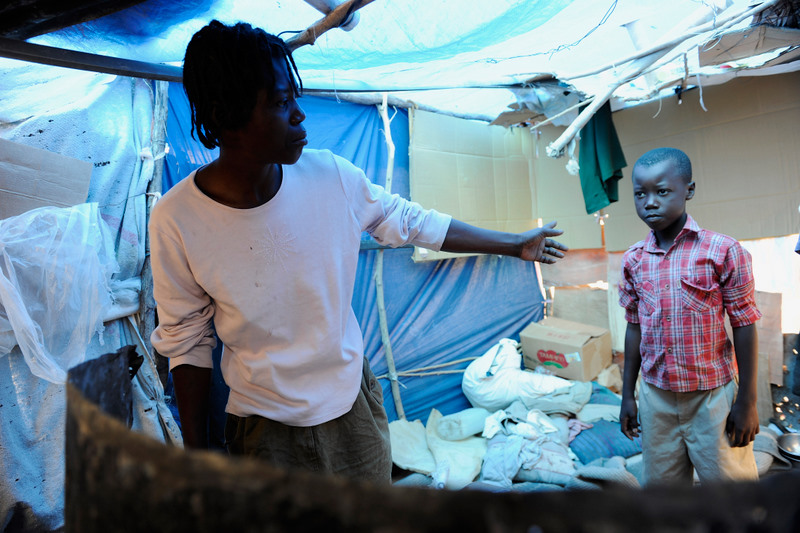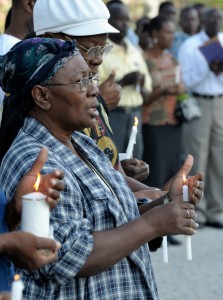Of the current situation in Pakistan, Pakistan-based staff members of Church World Service offer the following reflection:
In the five years since the 2005 earthquake devastated parts of Pakistan, not one year has gone by in which the people of Pakistan have not suffered from disaster. The years 2006 and 2007 brought floods; although not even close to the destruction brought by this year’s floods, people still lost their lives, homes, crops and livestock.
In 2008, a powerful earthquake rendered thousands homeless in Balochistan at the onset of winter. In 2009, millions of people were displaced by the conflict between the Pakistan military and militants in Khyber Pakhtunkwa and Waziristan.
Throughout these years, severe drought and water shortages plagued the agricultural communities, which constantly live with the reality of food insecurity. Now, 2010, a year that was supposed to be a time of new beginnings and the continued road to recovery of previous disasters, has turned into a record-breaking year for flood destruction and not just in one province, but throughout the entire country.
Resilient is a word often used to describe the people of Pakistan, but this cycle of loss and destruction is truly testing this attribute. Thousands of people have been living in pre-fabricated shelters still trying to regain their lives and livelihoods lost five years ago.
Entire communities began to experience rebirth but now these very same people must start over again after the floodwaters are gone. Displaced persons, many who have only recently returned home to Swat and other areas, once again find themselves without homes and property. Farmers who were already struggling with food insecurity have lost or may lose this year’s harvest, thus, pushing them farther away from achieving food security for their families.
Undoubtedly the floods have caused widespread damage to agricultural and crop lands, adding further threats of food insecurity to flood-affected families. Particularly affected are the crop lands in the province of Punjab, known as the breadbasket of Pakistan – thereby exacerbating the problems facing the country. As sources of food supply remain underwater, families face the possibility of not being able to harvest and sow their crops. Worsening the situation — increased prices for essentials like sugar.
What is most worrisome is the harsh test of time, and a cycle of never-ending disasters: Flood-affected families in Kashmir, Muzaffarabad, Gilgit-Baltistan and Balakot had already experienced massive devastation in the 2005 South Asian earthquake.
“People in the affected areas are most vulnerable and they had hardly managed to get their lives back together after the earthquake. Again everything they had is taken away from them,” said Dennis Joseph, associate director of the CWS program in Pakistan. “At this moment it is not just their material well-being but also their physical well-being, which includes their mental well-being that is important.”
Dennis shared the story of Mehr Nisar, a 50-year-old widow from Punda Balla Village. She told Joseph: “I lost my husband in the earthquake, and I was living in a [pre-fabricated] shelter with my son after that. This has now been destroyed as half of the land under the shelter was washed away.”


